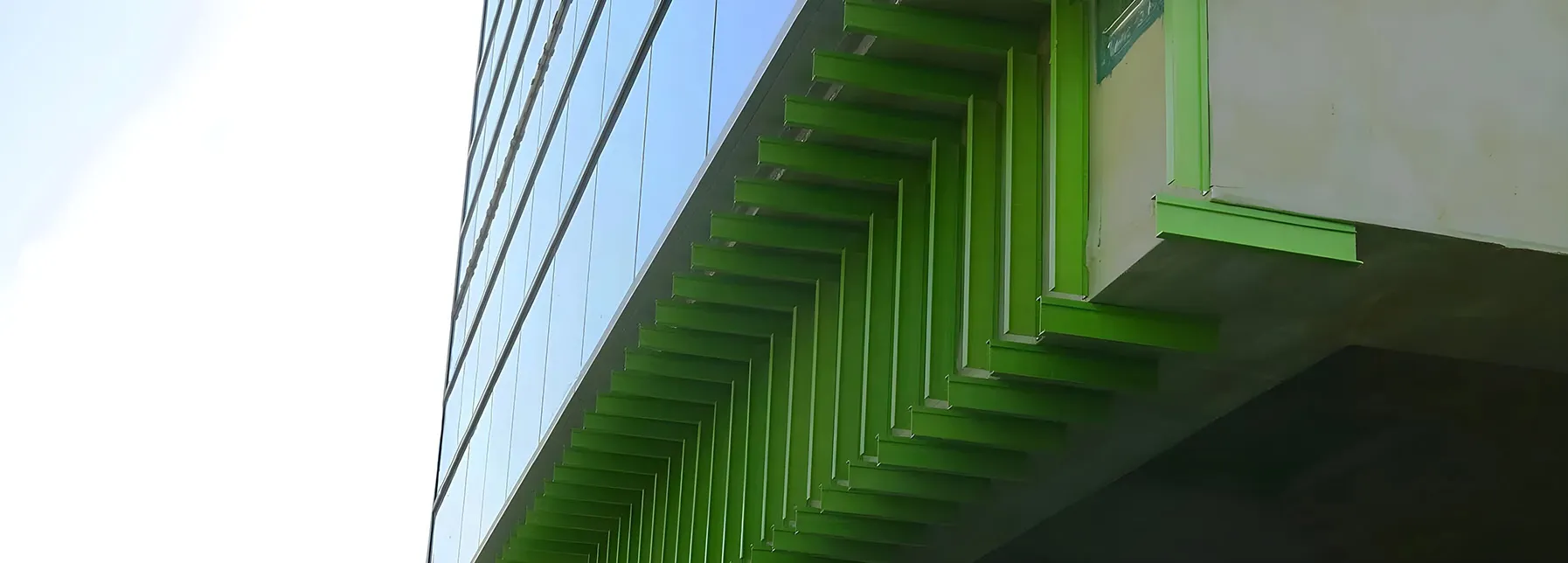Structural integrity: best practices for cladding support
Advanced engineering and building techniques to ensure safety, longevity, and structural integrity in continuous insulation and building enclosure systems.
Best Practices
Structural Integrity
![]() Structural integrity is a foundational principle in the design and construction of continuous insulation and building enclosure systems. It invoves ensuring that structures are capable of withstanding expected loads and environmental stresses without failure during their intended lifespan. Maintaining structural integrity is vital for the safety, durability, and longevity of buildings. By adhering to best practices in structural integrity, construction projects not only comply with regulatory standards but also achieve superior performance, reducing risks and enhancing overall building quality. This approach is essential for creating resilient structures in the face of diverse climatic conditions.
Structural integrity is a foundational principle in the design and construction of continuous insulation and building enclosure systems. It invoves ensuring that structures are capable of withstanding expected loads and environmental stresses without failure during their intended lifespan. Maintaining structural integrity is vital for the safety, durability, and longevity of buildings. By adhering to best practices in structural integrity, construction projects not only comply with regulatory standards but also achieve superior performance, reducing risks and enhancing overall building quality. This approach is essential for creating resilient structures in the face of diverse climatic conditions.
Features
Passes ASTM D2990 (transverse material creep test)
Continuous insulation and building enclosure systems must demonstrate resistance to material creep by passing transverse creep tests, ensuring long-term durability and structural reliability under sustained stress.
Incorporating point load design
Best practices include designing systems to effectively handle point loads, crucial for maintaining stability and managing uneven load distribution within building structures.
Designing for cantilevers, joinery, and eccentric loads
It’s essential to design building enclosures and insulation systems that efficiently manage cantilevers, joinery, and eccentric loads to optimize structural balance and improve load distribution for enhanced safety.
Validation through Finite Element Analysis (FEA)
Systems should be approved through Finite Element Analysis (FEA) for every project to confirm their structural integrity and their ability to withstand various stress and strain conditions, ensuring sound structural behavior.
Maintaining the tensile strength compared to steel
Ensuring that continuous insulation materials possess tensile strength comparable to steel in both lengthwise and crosswise directions is vital for offering exceptional durability and resistance to forces from multiple directions.
Verifying performance across service temperatures
Systems should be tested and verified to perform reliably across a wide temperature range, from -40 to 180 degress Fahrenheit, ensuring consistent performance under extreme environmental conditions.
Compliance with E72-15 at service temperature for extended periods
Best practices for continuous insulation and building enclosure systems include compliance with E72-15 standard at service temperatures for extended periods, such as 7 days, to demonstrate the system’s ability to maintain performance and structural integrity under prolonged thermal exposure.
Dynamic Mechanical Analysis (DMA)
Dynamic mechanical analysis (DMA) is crucial for determining the optimal insulation materials for continuous insulation building enclosures by assessing their mechanical and thermal performance. This analysis aids in selecting materials that enhance energy efficiency and durability, aligning with best practices in building construction.
Static structural testing
Static structural testing is essential for ensuring that materials used in continuous insulation and building enclosures meet required strength, stiffness, and durability standards. By evaluating the load-bearing capacity and long-term performance under controlled conditions, this testing helps ensure that building practices adhere to the highest standards of safety and efficiency.
How GreenGirt CMH, GreenGirt Steel and SMARTci Systems Meet and Exceed Structural Integrity Standards
GreenGirt CMH, GreenGirt Steel and SMARTci systems exemplify structural integrity through rigorous adherence to established best practices. By passing transverse creep tests and incorporating point load design, these systems demonstrate exceptional durability and stability under varying loads and environmental conditions. The approval of these systems by Finite Element Analysis (FEA) and their compliance with industry standards like E72-15 further confirm their robustness and reliability. With materials that match the tensile strength of steel and verified performance across extreme temperatures, GreenGirt CMH, GreenGirt Steel, and SMARTci ensure a high standard of safety and efficiency, making them ideal for modern construction demands.

Frequently Asked Questions (FAQs)
No, GreenGirt CMH does not creep over time. Continuous insulation and building enclosure systems should demonstrate resistance to long-term creep by passing ASTM D2990 (transverse material creep test). This verifies the system can maintain structural reliability under sustained stress over its service life.
Yes. Structural-integrity best practice is to design continuous insulation systems to handle point loads and to account for cantilevers, joinery, and eccentric loads. Systems should be approved using Finite Element Analysis (FEA) for every project to confirm structural behavior under expected stress and strain conditions.
GreenGirt CMH, GreenGirt Steel, and SMARTci systems have been tested and verified to perform reliably from -40°F to 180°F, supporting consistent structural performance in extreme environmental conditions.


